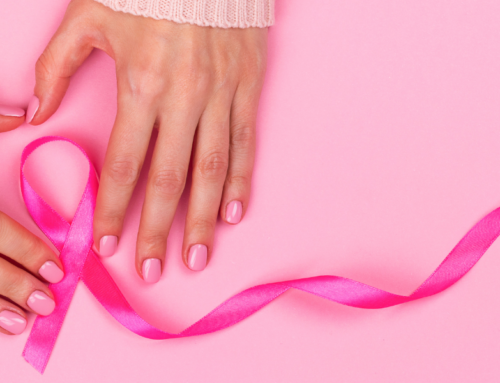September is PCOS Awareness Month, which aims to spread information about Polycystic Ovarian Syndrome in hopes of helping improve the lives of those affected.
It also wishes to help those diagnosed with it manage symptoms and lower, if not completely prevent, the risk of life-threatening diseases linked to this disorder.
Throughout this month, organizations from around the world run campaigns to help spread the word about PCOS and how it can be managed. We are one with them.
Last year, we shared facts about PCOS and now, we are going to answer a PCOS-related question we have been getting a lot:
How can a menstrual cup help with my PCOS?
Get protection from unexpected bleeding
One of the most common complaints of those with PCOS is having irregular periods. Although it means having fewer periods for somewhere their cycles are longer, there are those who get menstruation more often because their cycles are shorter.
Many people with PCOS also complain about bleeding between periods, which can also be challenging for any menstruator, since they can’t be so sure when exactly they will start bleeding. Worse, it may arrive on a day when they are simply out and unprepared.

If you have this problem, a menstrual cup can help you. A menstrual cup is reusable, which means that you can take it with you wherever you go. Just make sure that it is clean and ready to use each time, so you can simply insert it when your period suddenly comes.
And since it is hypoallergenic, you can already wear it even if your period has not started yet. This is a great move if you are traveling and are worried that your period might come anytime soon.
Avoid leaks during heavy flows
PCOS messes with one’s hormonal levels, which can lead to heavy menstrual flows.
And not just that, PCOS leads to clotting as well, sometimes resembling the texture of jam. If you were using a napkin, it would not do a good job of absorbing clots, and leaks would be very likely.
Anyone who has ever had a period knows how challenging it can be to deal with heavy flows—especially on busy days. Besides increasing the risk of period leaks, heavy flow also means more frequent bathroom visits.

If you have a menstrual cup, though, you can lower the risk of leaks and lessen your bathroom visits. That’s because a menstrual cup has a much bigger capacity compared to pads and tampons.
Just the small cup is three times the capacity of a regular menstrual pad! It can be really helpful, especially if you are a busy person or don’t have easy access to a clean restroom.
Get protection no matter how long your period lasts
Irregular periods can sometimes mean periods that last 10 days or longer. And we all know that packing and wearing napkins for that long can be a literal pain, with possible irritation and abrasion from using pads.

Although the best-case scenario would be that lengthy menstruation is stopped or managed through treatment, it would be best to cruise through these bloody days with a menstrual cup.
You can forget about the bleeding for up to 12 hours at a time! But of course, if you do experience menses this long do not forget to get checked up.
Avoid harmful chemicals
Did you know that your hormones can be affected by chemicals in the environment? For those living with PCOS, making sure your hormones are balanced can take a lot of work, like communicating with your doctor, analyzing your lifestyle, and testing out what treatments and interventions would be right for you.
Your menstrual products may be one of the many lifestyle components contributing to your symptoms, and so it’s important to be particular about what you use.

It is for this reason that many menstruators with PCOS prefer menstrual cups to other period products. Unlike disposable pads and tampons, our menstrual cups are made of medical-grade silicone which does not release harmful chemicals. They do not alter the vagina’s natural environment, either.
Dealing with PCOS can be difficult, but it does not mean that you can’t make things a bit more bearable. Just make sure that you consult a doctor first before making any major decision concerning your health.







